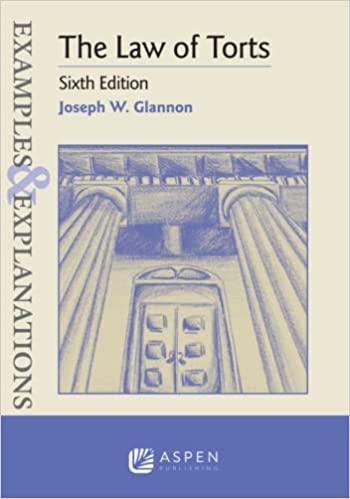Question
CASE #3: Smith v. Fair Employment & Housing Commission (1996) Pg. 130 in Textbook CASE SUMMARY : A landlord refused to rent to an unmarried
CASE #3: Smith v. Fair Employment & Housing Commission (1996) Pg. 130 in Textbook
CASE SUMMARY: A landlord refused to rent to an unmarried couple based on her religious convictions that to do so would be to condone "sin". The couple filed a complaint with the California Fair Employment and Housing Commission alleging violation of the Unruh Act, as well as California's Fair Employment and Housing Act. While an administrative law judge ruled in favor of the couple and awarded damages, the decision was appealed to the Court of Appeal where it was reversed.
The California Supreme Court reversed the Court of Appeal and pointed out that neither federal nor State Law allows an exemption to a landlord for discrimination because of a personal contrary religious belief.
Questions regarding this Case:
- The California Unruh Act regulates what classification of entities (hint: not residential)? The Law includes many Protected Classes; what new ones were added in the year 2006 and in the year 2016?
- The California Fair Employment and Housing Act (aka Rumford Act) regulates what classification of entities? What entity/situation could be exempted from compliance with the Rumford Act?
- Why do you think it is important for Real Estate Licensees and Property Managers to be aware of historically evolving Federal and State Discriminatory Laws? What ways do you think complying with these Laws can be used as a competitive advantage in the Real Estate Industry?
Step by Step Solution
There are 3 Steps involved in it
Step: 1

Get Instant Access to Expert-Tailored Solutions
See step-by-step solutions with expert insights and AI powered tools for academic success
Step: 2

Step: 3

Ace Your Homework with AI
Get the answers you need in no time with our AI-driven, step-by-step assistance
Get Started


